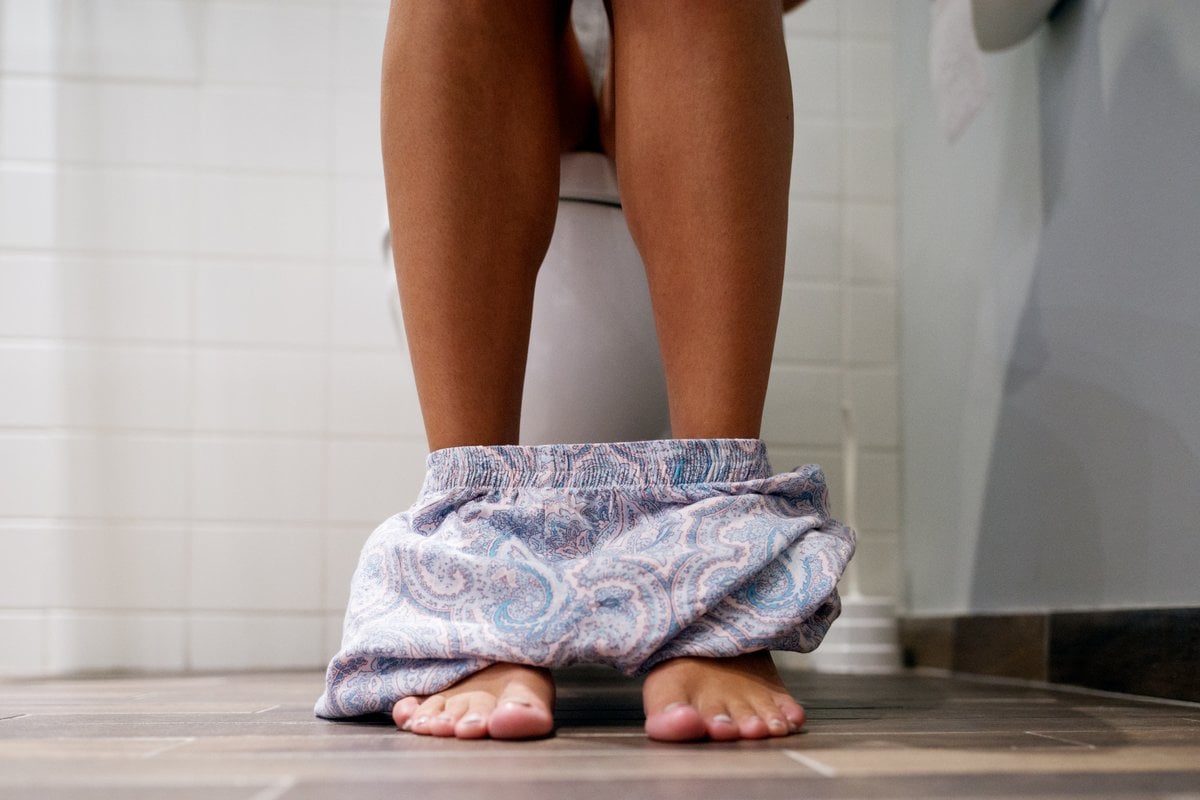
Picture this: after taking your time in a warm shower, you moisturise, chuck on your comfiest pyjamas, brush your teeth, go to the toilet and slide into bed.
The sheets are cold, but you quickly warm them up, wrapping yourself up in the doona like a human burrito. You pick up your phone and set your alarm for the morning. You might have a quick scroll on Instagram or pick up a book, chat with your partner or watch a video on YouTube. Once you’re finally ready to switch off, you roll over and close your eyes.
Then, it happens. That familiar dull surge down there. And not the one that means you might like to have an orgasm. No, you need to pee, again. Even though you literally just went.
In bedrooms and bathrooms around the country, women are dragging themselves out of their perfectly warm and cosy beds to go to the toilet because it simply must be the very last thing they do before going to sleep. The official terms for it are ‘nocturia’ or ‘frequent evening urination’.
I am one of these women and have been for years. I thought it was one of my cute little quirks. But after admitting my annoying evening habit in a meeting (trust me, it was relevant), a few of my colleagues said they do the same thing. So, as it turns out, I’m not special and neither is my nightly peeing habit.
Need help getting to sleep? Here are some tips to try tonight. Post continues after video.
